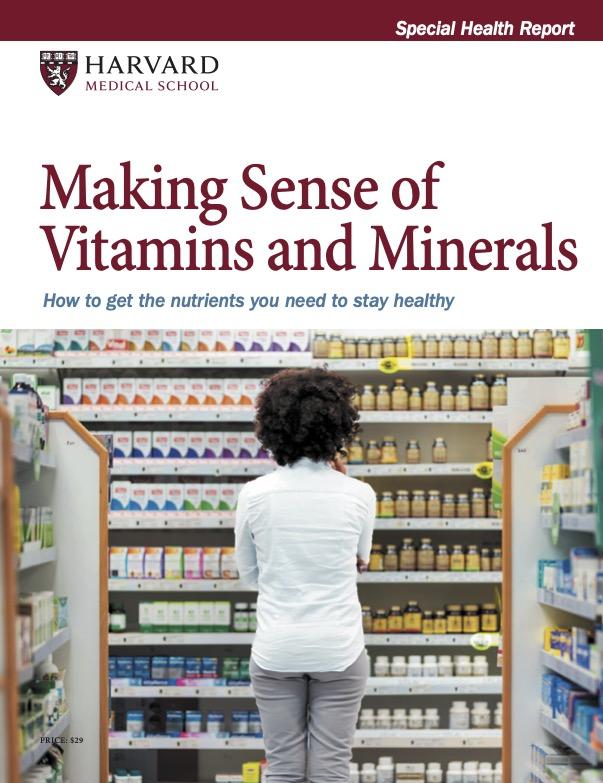More evidence suggests multivitamins slow cognitive decline
Ask the doctor
 Q.
I hear a new study shows that a daily multivitamin pill may help the brain. Any truth to that?
Q.
I hear a new study shows that a daily multivitamin pill may help the brain. Any truth to that?
A. Back in September 2023, I answered a similar question. Enough studies on the subject had already been published to lead me to conclude that — at least for a few years — a daily multivitamin pill might help protect against declines in certain aspects of cognition. But I also knew that larger and better studies were nearing completion and were likely to provide a more solid answer. Now, they have.
The new study you're referring to probably is one organized here at Harvard, involving medical centers around the country. It was the best type of study for determining if a treatment is effective, a randomized controlled trial: some people were assigned at random to take the multivitamin pill, and others were assigned to take an identical-looking placebo (inactive pill). And neither the study participants nor the research team knew, until the end of the study, who had taken the multivitamins.
The new study was published in the January 2024 issue of The American Journal of Clinical Nutrition and involved people ages 60 or older. It is better in many respects than past studies have been. It included more people (over 5,000), followed participants longer (more than two years), and more precisely measured cognitive abilities — both before and two years after starting on multivitamins. Two aspects of cognition known to predict the later development of Alzheimer's disease and related kinds of dementia were measured: global cognition and episodic memory. Since there is a slight natural decline in both of these measures with aging, the study was asking if the people taking multivitamins had a slower decline than those taking the placebo.
Indeed, both of these cognitive measures declined less over two years in those taking the multivitamins than in those taking the placebo. This was seen consistently in all groups of people, regardless of age, sex, race or ethnic group, weight, diet, or their level of cognitive ability before the study began. And no adverse effects from taking multivitamins were noted.
Based on the results of this study, I think it is likely that a daily multivitamin pill slows age-related cognitive decline, at least for two years, in people ages 60 or older. But that leaves many important questions unanswered. Would this benefit persist if people took multivitamins for more than two years? Do daily multivitamins also reduce the risk that a person will develop dementia? How do multivitamins produce their positive effects? The pill used in this study contained over 20 vitamins and minerals: are only some of them responsible for the positive effect? These questions can only be answered by research. We need those answers.
Image: © FotografiaBasica/Getty Images
About the Author

Anthony L. Komaroff, MD, Editor in Chief, Harvard Health Letter; Editorial Advisory Board Member, Harvard Health Publishing
Disclaimer:
As a service to our readers, Harvard Health Publishing provides access to our library of archived content. Please note the date of last review or update on all articles.
No content on this site, regardless of date, should ever be used as a substitute for direct medical advice from your doctor or other qualified clinician.
















